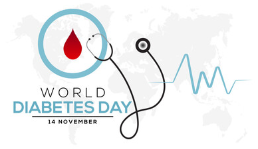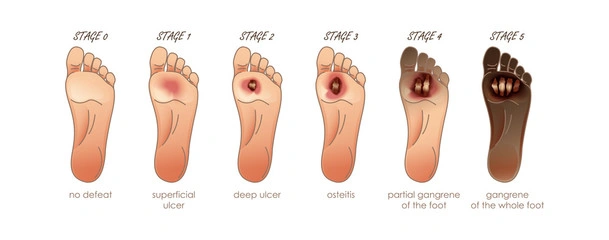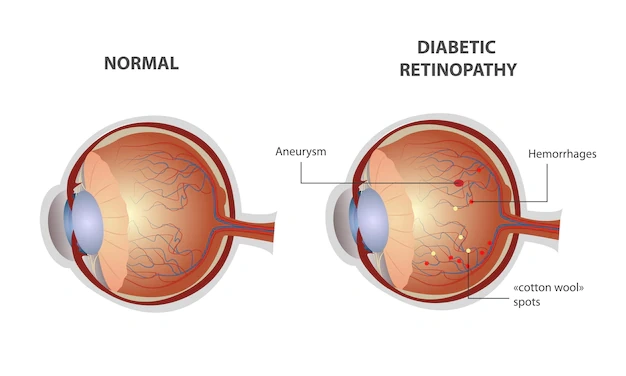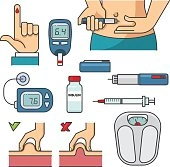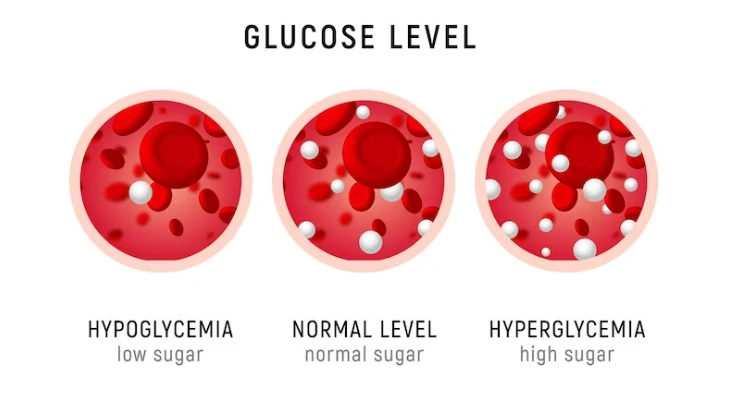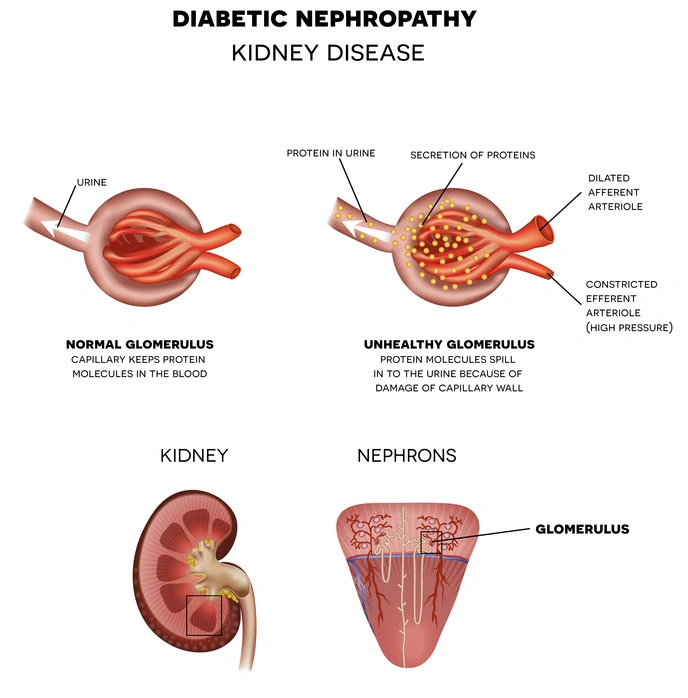Diabetic Nephropathy in Elderly Individuals: Stages, Symptoms, and Prevention Tips
01-10-24
In elderly diabetic individuals, particularly those with type 2 diabetes, renal impairment is common. It results from a complex pathogeny, especially the combined effects of arterial hypertension, hyperglycemia, and aging. Diabetes-related kidney disease (DN) is linked to a higher mortality rate from cardiovascular causes. End-stage renal failure (ESRF), which frequently results from DN, poses particular issues with decision-making and the practical organization of extra-renal epuration in diabetic and elderly patients.
Patients over 60 years old make up the largest group of patients with recently made diagnoses. Even the aging process itself can cause albuminuria, which, depending on its severity, is one of the diagnostic criteria. It is difficult to diagnose and treat patients when structural and functional changes brought on by diabetes and aging overlap. There are ways to detect diabetic kidney disease early and stop it from worsening. Diagnostics and therapy can and should be started in the early stages of the disease because this issue will affect an increasing number of people.
What are the stages?
Diabetic Nephropathy (Diabetic Kidney Disease) has five stages:
High Glomerular Filtration Stage: Stage I.
Stage I doesn't have any pathological harm. The key characteristics are a rise in Glomerular Filtration Rate (GFR) and an expansion in kidney size. These changes are already present in insulin-dependent diabetic patients, and, the kidney's blood flow, glomerular capillary perfusion, and internal pressure will increase. After receiving insulin therapy, the early stage of renal affliction is reversible and recoverable.
Stage II: Stage of Normal Albuminuria.
There are glomerular structural changes already in stage II. GFR >150 mL/min is markers for patients who are more likely to develop clinical diabetic nephropathy (Diabetic Kidney Disease). There are no symptoms in this stage.
Stage III: Diabetic Nephropathy in the Early Stages (Diabetic Kidney Disease).
Naturally, long-term poor metabolic regulation is a contributing factor. The blood pressure will slightly increase at this point. We observe breathlessness, puffiness, brown urine, and back pain at this stage.
The clinical stage of diabetic nephropathy is stage IV.
There is small microscopic hematuria, an increase in blood pressure, and urine casts. Edema will develop as a result of a significant loss of urine protein. Even though most patients don't have high blood creatinine levels at this time, GFR will decrease by 1 ml/min every month. Severe breathlessness and swelling may occur, which can be controlled by medications.
Renal Failure Stage: Stage V.
When the ongoing protein loss in the urine progresses to clinical diabetic nephropathy, the kidney's ability to filter waste products would gradually deteriorate and eventually fail. In the end, severe hypertension, and edema will develop in the majority of patients. Dialysis and kidney transplantation are the treatment choices.
Diabetes patients should regularly monitor the progression of diabetic nephropathy (also known as diabetic kidney disease) and take steps to stop it from happening.
What are the symptoms?
You would probably not experience any symptoms or indicators in the early stages of diabetic nephropathy. Signs and symptoms that appear later on include:
●Deteriorating blood pressure regulation
●Urine contains protein.
●Swelling of the hands, eyes, feet, or ankles
●increased urination frequency
●Decreased need for insulin or diabetic medication
●Confusion or attentional issues
●Breathing issues
●Appetite loss
●Nausea and diarrhea
●Chronic itching
●Fatigue
Treatment
However, there is no specific therapy for the condition, and those that exist often focus on blood pressure and glycemic management.
●If well tolerated in elderly people, tight blood pressure control can slow the course of renal lesions.
●It is imperative to prevent potentially nephrotoxic products, pain-killers, and iodinated contrast media, from worsening kidney lesions.
●Dialyzes are administered to some individuals already at an advanced stage of renal failure.
●Modifiable factors, such as protein and salt consumption or cigarette smoking, can affect how the condition develops.
Clinical symptoms frequently do not determine the diabetes etiology of nephropathy in an elderly diabetic patient in the absence of a renal biopsy. Tight blood pressure and glucose management are the mainstays of DN prevention.
Tips that help prevent DN
Tips to prevent the progression of diabetic kidney disease:
1.Monitor your glucose level.
2.Consuming a balanced diet
3.Exercising
4.Avoid smoking
5.Preserving a healthy weight.
6.Getting sufficient rest
7.Limits on alcohol
8.Using blood pressure medications
9.Using a statin to improve cholesterol management
